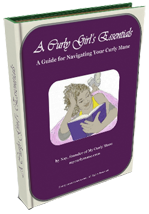Have you noticed all the ombré hairstyles and other trendy color effects that ladies have been sporting? Well, it goes without saying that summer is the perfect time to experiment with these and other colorful looks. If you’re like me, you love, love color but want to avoid all the drawbacks of commercial hair dyes.
What drawbacks, you ask? While the leading commercial hair dye companies provide a variety of color options, hair colorants can change hair’s inner structure and dry it out, especially if bleaching is involved. Frequent coloring can lead to damage (say bye bye!) and/or split ends (snip, snip!). Of course, you can always skip the bleach if you are seeking darker shades.
Even if you do, rumor has it that hair dyes may be connected to cancer causing agents. According to the National Cancer Institute, early hair dye formulations (before 1980) contained cancer causing chemicals. They have since been removed from most brands’ ingredients. However, few studies have been published since then on hair dyes’ link to certain cancers.
Not to mention, pregnant women are advised to avoid coloring since small amounts of the dye penetrate the skin upon use. This may or may not harm a developing baby, although research claims that it does not pose a significant threat.
Risky? Hmmmm maybe.
If you want to switch up your look sans chemicals, you’re in luck. I’ve got five ways that you change your natural hair color by dyeing it … naturally!
1. Cassia
Cassia Obovata is a plant that contains a golden-yellow dye molecule. When used, color is safely deposited on hair’s surface layer as it conditions hair.
I’ve always wanted to try this one. I’m adding it to my to-try list!
Pros: Cassia will permanently turn blond or gray hair a golden color. It also makes hair shiny, healthy, and strong, so it is often used as a conditioning treatment for afro textured hair.
Cons (maybe): You most likely will not notice a difference on darker hair tones. Some people have experienced a loosening effect on their curls, which may or may not be desired.
Directions: You can mix cassia with conditioner and honey, and apply this mix to your hair. For all the deets, visit hennaforhair.com.
2. Coffee
A mean brew works wonders for all-nighters … and for hair! Coffee is great for staining natural hair. It applies color on the surface level of strands, so the results tend to be temporary for most people.
(whips out pen; adds coffee to the list)
Pros: Coffee gives dark hair reddish-brown highlights, more akin to a rinse. Some people have found that coffee darkens their henna results (see below) when added to their mix.
Cons: It won’t provide intense color. The results may be subtle on darker colored hair. It requires repeated weekly applications for best results.
Directions: Mix 1/2 cup of your favorite conditioner with 1/4 cup of instant coffee granules. Add 1/4 cup of coffee or espresso into the mix and stir. Apply the mixture and cover your hair with a cap. Let the mix sit on your hair for an hour. Rinse with cool water and condition to counteract coffee’s acidity.
3. Henna
Henna, a natural colorant which is derived from a flowering plant, has been used throughout centuries for dying skin and hair. It is used by many African-American women with natural hair since it can strengthen our fragile hair type. It is also safer than commercial hair dyes, since color is deposited on hair’s surface layer as opposed to the cortex. Henna’s popularity is evident by the numerous natural hair care forums, communities, and Websites centered on the topic.
Why, oh, why did I not know about henna back in my multi hair coloring days??
Pros: This natural colorant typically turns hair a shade of red, depending on the person’s original hair color. It also adds sheen to hair and can reduce frizz and dandruff.
Cons (maybe): Henna can loosen curl patterns and thicken natural hair, and the color results can be unpredictable. The application process can be a bit intense, since henna must be left on hair for several hours in order to permeate the hair shaft. It can also easily stain materials during the application process.
Directions: This can vary. Lots of curlies have come up with their own formulations. Curly Nikki is a fan of henna and has gotten great results. You can also find tips at hennaforhair.com.
4. Honey
Not only does honey work wonders for colds, but it also conditions and bleaches hair naturally. Honey slowly releases hydrogen peroxide, which is used to lighten hair. With honey, you’ll get results that are a shade lighter than your original color. Raw (unprocessed) honey is reported to work best since it has more hydrogen peroxide. Honey is also a humectant, so it pulls moisture into hair.
I have tried this one, and it did make my hair very soft! Color? I only tried in on occasion, not enough to see a difference.
Pros: Natural highlights and soft, shiny hair.
Cons: Honey lightens hair over time. Multiple applications (at least three) are needed to produce results. It is very sticky if used alone, so a mix is recommended.
Directions: Mix 5 tbsp of honey and 1 cup of yogurt together to make a non-sticky paste. This combo also makes a wicked deep conditioner, especially if combined with oil. Apply the paste and leave it on your hair for at least 2 hours.
5. Lemon Juice
Ever tried Sun-in back in the day? I did, and it worked, mostly because it contains lemon juice and hydrogen peroxide. If you want to skip all the additional chemicals, just try this route. Lemon juice will gradually lighten your natural hair due to the citric acid it contains.
Pros: Lemon juice brings out natural highlights, causing black and dark brown hair to take on a reddish hue. Brown hair will become light brown, and blonds will have golden highlights.
Cons: Lemon juice’s acidic properties can make it drying. Condition, condition, condition!
Directions: Combine 3 tbsp. lemon juice with 2 cups water. Add conditioner for extra moisture. Use a spray bottle or hands to apply the mix. You’ll need heat to activate it. Sit in the sun for 2 hours or under a hard hat dryer.
Any of these natural hair dyes can change your hair’s color, and some of these ingredients can even be found easily in your kitchen. Most importantly, you’ll be able to update your look without ruining your curly mane.







